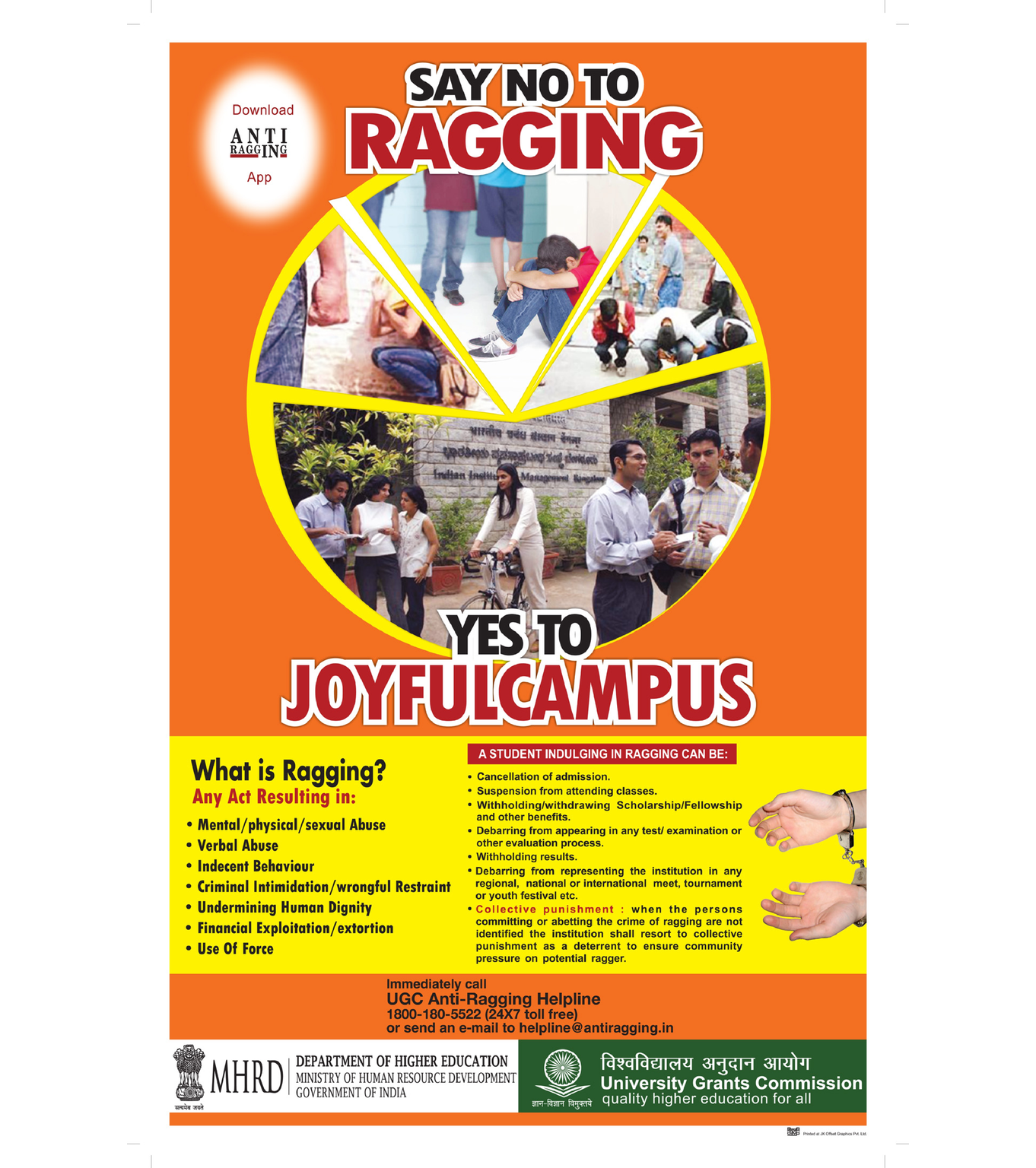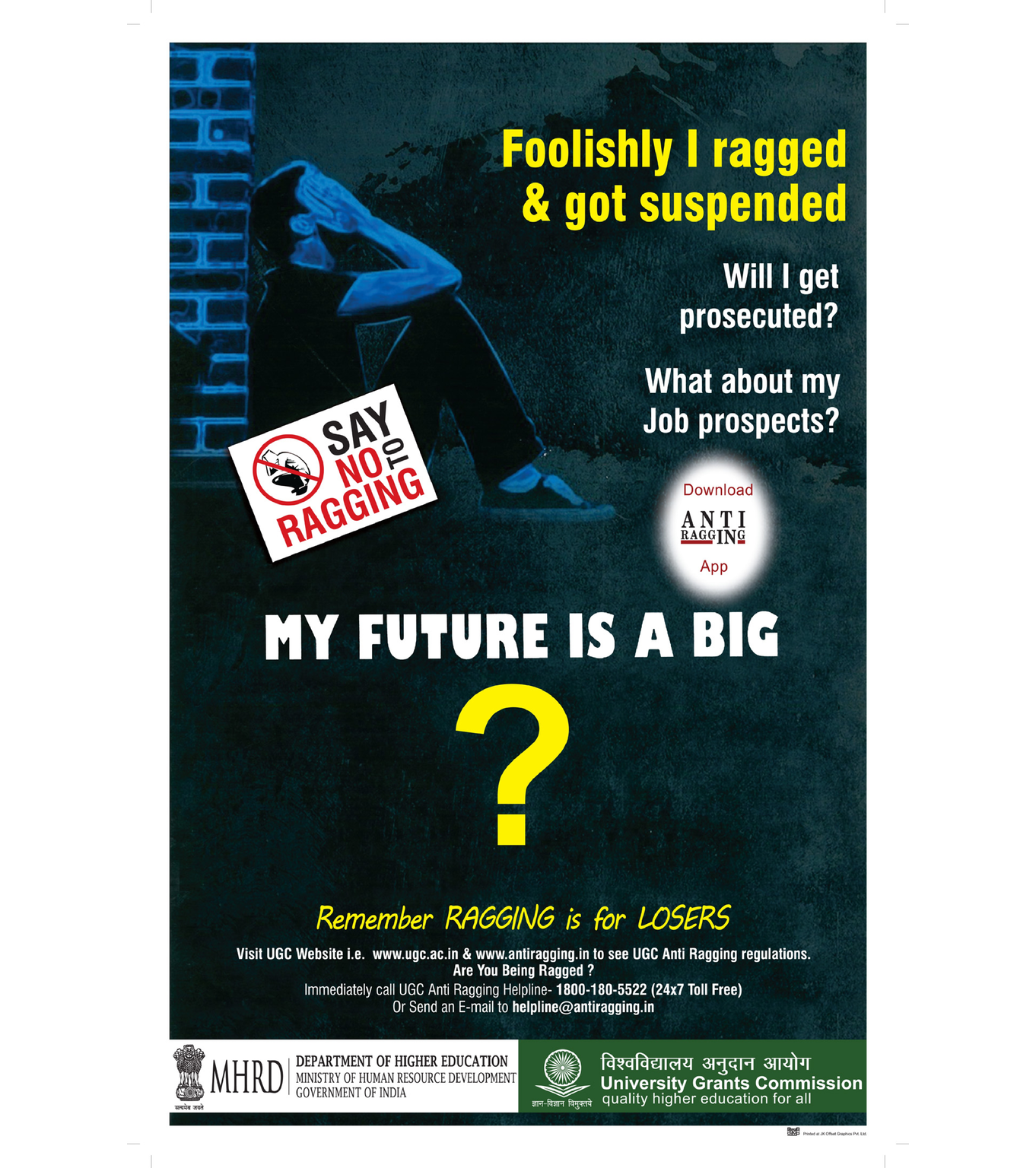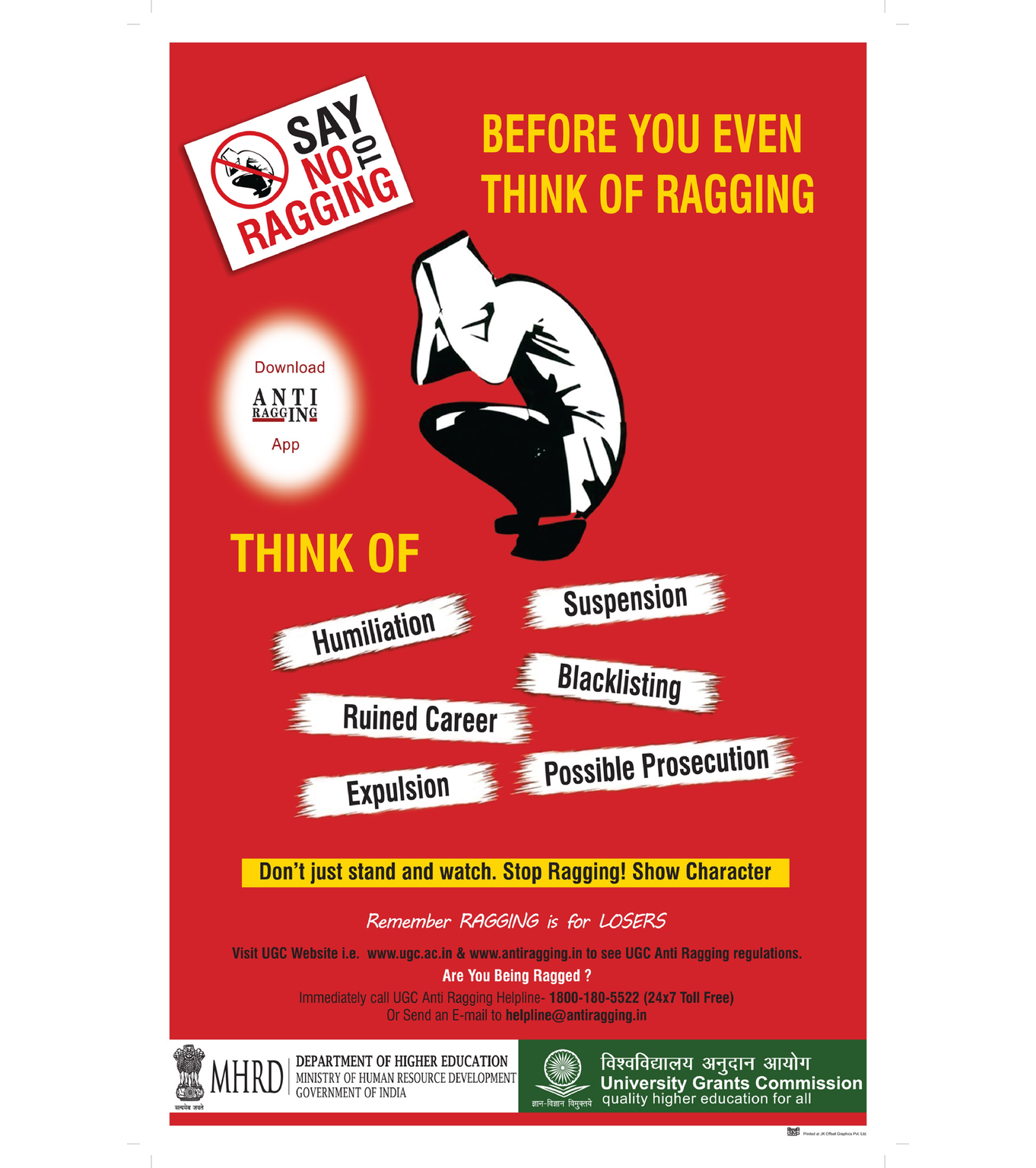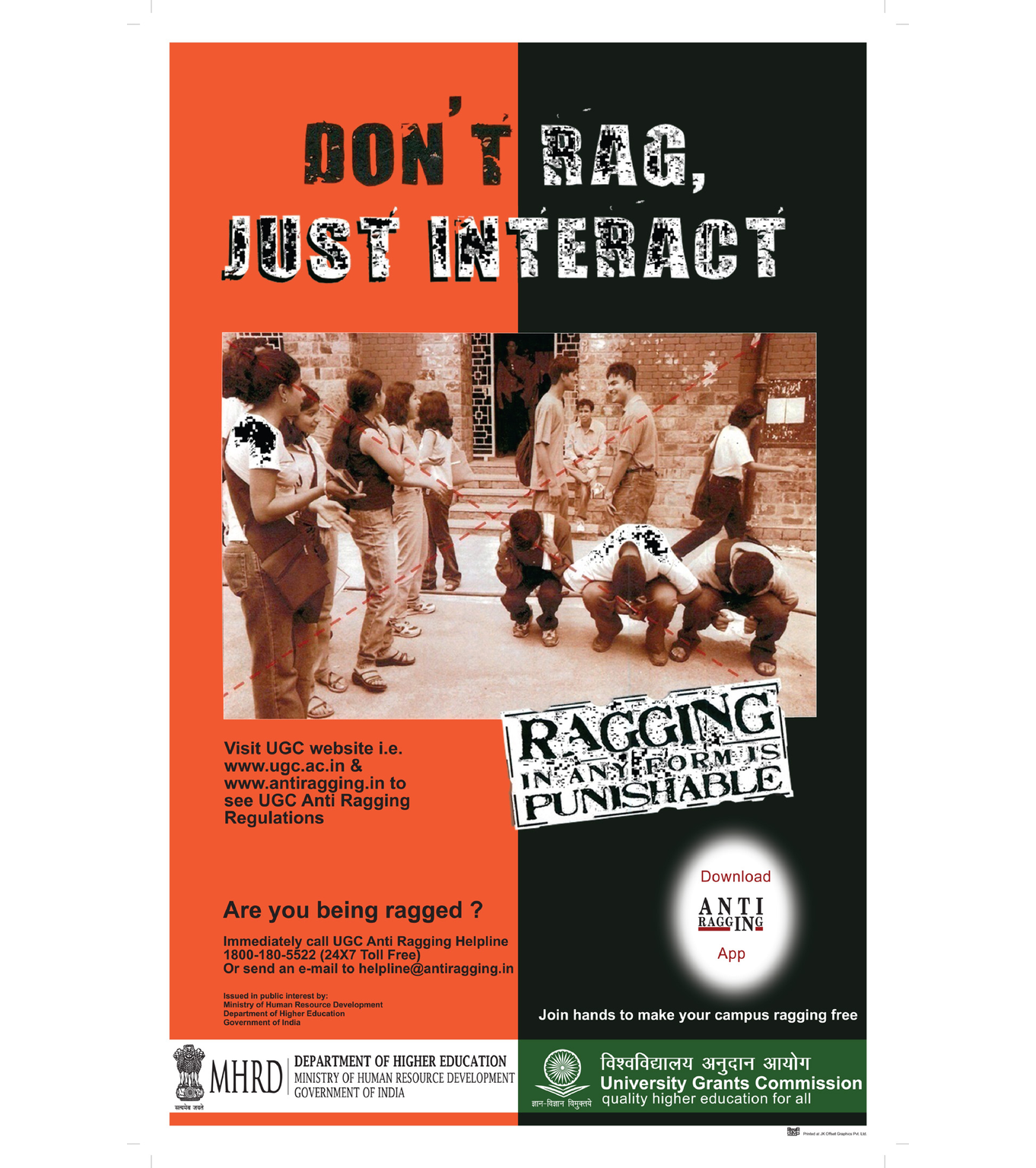




ANTI RAGGING COMMITTEE
Arts & Commerce College, Warwat Bakal, recognizes the importance of providing students with a secure and friendly atmosphere by implementing anti-ragging measures. The initiatives taken by the college align with the directives set forth by the University Grants Commission (UGC) to address and prevent ragging in higher education institutions.
Following the ruling in Civil Appeal No. 887/2009 by the Hon’ble Supreme Court of India, the UGC has indeed issued regulations aimed at curbing ragging. These regulations are crucial in fostering a safe and inclusive environment within educational institutions, where bullying, exclusion, and discrimination based on any grounds are strictly prohibited.
The formation of a committee dedicated to addressing the issue of ragging demonstrates the college’s commitment to ensuring the well-being of its students. This committee plays a pivotal role in tackling instances of ragging promptly and effectively, thereby creating a conducive learning environment for all students.
By implementing and enforcing anti-ragging policies, Arts & Commerce College, Warwat Bakal, not only complies with legal directives but also upholds its responsibility to nurture a culture of respect, tolerance, and mutual support among its student body. Such measures are essential for fostering holistic growth and ensuring that students can fully benefit from their educational experiences.
OBJECTIVES OF THE COMMITTEE:
The anti-ragging committee aims to achieve the following:
- The committee’s primary objective is to enhance student awareness regarding the detrimental effects of ragging and emphasize the significance of maintaining a respectful atmosphere within the college premises. It aims to address and prevent any form of physical or mental abuse directed towards students, especially those who are new to the institution, based on various personal characteristics. These characteristics include but are not limited to color, race, religion, caste, ethnicity, gender (including transgender individuals), sexual orientation, appearance, nationality, regional origins, linguistic identity, place of birth, place of residence, or economic background. This goal is in alignment with the expanded definition of ragging provided by the University Grants Commission’s (UGC) 3rd Amendment to the Regulations. By recognizing and acknowledging the diverse factors that may contribute to instances of ragging, the committee endeavors to create a safe and inclusive environment where every student feels respected, valued, and free from any form of harassment or discrimination. Through educational initiatives, awareness campaigns, and proactive intervention strategies, the committee seeks to instill a culture of empathy, compassion, and mutual respect among students. By promoting understanding and tolerance, the committee aims to foster a cohesive community wherein all individuals can thrive academically, socially, and emotionally.
- The committee’s objective is to put an end to various forms of misconduct, including verbal abuse, intimidation, harassment, physical assault, and psychological harm inflicted by seniors, groups of students, or individuals on others within or outside the campus environment. These actions are explicitly prohibited under the “Regulations on Curbing the Menace of Ragging in Higher Educational Institutions.” In accordance with the regulations and relevant laws, individuals found guilty of such misconduct face disciplinary actions that correspond with the seriousness of the offense. Punishments may range from expulsion from the institution to legal consequences such as incarceration, as stipulated by both the law and UGC policies. By strictly enforcing these regulations and imposing appropriate sanctions, the committee aims to deter any form of ragging and ensure the safety and well-being of all students. Additionally, it serves as a deterrent to potential perpetrators, thereby contributing to the creation of a secure and conducive learning environment where every student can thrive without fear of harassment or intimidation.
- The committee offers students a private forum where they can report bullying incidents. It ensures that complaining is easy and provides victims with a safe space to do so.
- The committee conducts fast, unbiased investigations of allegations of ragging. If they found guilty, the offenders face suitable disciplinary measures that follow the law and UGC policies.
- In order to assist ragging victims in overcoming their trauma and regaining their confidence, the committee provides counselling services. Additionally, it offers assistance to students who could experience mental or emotional anguish as a result of ragging situations.
WHAT CONSTITUTES RAGING:
Any one or more of the behaviours or acts mentioned in the ‘Regulations for Curbing the Menace of Ragging in Higher Educational Institutions, 2009’ are considered to be forms of ragging.
Punishable ingredients of Ragging:-
- Abetment to ragging;
- Criminal conspiracy to rag;
- Unlawful assembly and rioting while ragging;
- Public nuisance created during ragging;
- Violation of decency and morals through ragging;
- Injury to body, causing hurt or grievous hurt;
- Wrongful restraint;
- Wrongful confinement;
- Use of criminal force;
- Assault as well as sexual offenses or unnatural offences;
- Extortion;
- Criminal trespass;
- Offences against property;
- Criminal intimidation;
- Attempts to commit any or all of the above-mentioned offences against the victim(s);
- Physical or psychological humiliation;
- All other offences following from the definition of “Ragging”.
PUNISHMENT PROVISIONS:
Any student or group of students studying at Arts & Commerce College Warwat Bakal found guilty of ragging on campus or off campus shall be accountable to one or more of the subsequent punishments:
- Debarring from appearing in any sessional test/ university examination or withholding results
- Suspension from attending classes and academic privileges
- Withdrawing scholarships and other benefits
- Suspension from the college for a period of one month
- Cancellation of admission
- Debarring from representing the institution in any national or international meet, tournament, youth festival, etc
- Suspension/expulsion from the hostel
- Rustication from the institution for periods varying from 1 to 4 semesters or equivalent period
- Expulsion from the institution and consequent debarring from admission to any other institution
- Fine up to twenty-five thousand rupees
- Imprisonment for a term which may extend to two years or with fine which may extend to ten thousand rupees or with both
- Collective punishment – When the students committing or abetting the crime of ragging are not identified, the institution shall resort to collective punishment as a deterrent to ensure community pressure on the potential raggers.
Any institution that fails to take satisfactory steps to prevent ragging or fails to act in accordance with the regulations or fails to punish perpetrators or incidents of ragging appropriately is liable to the penalties and punishments as per the provisions of the regulations.
OTHER USEFUL LINKS:
The following are a few helpful links that should be reviewed periodically to improve understanding of Anti Ragging Committee operation and functioning.
OTHER LINKS:

